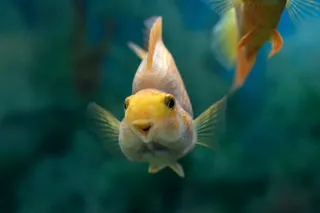Mike the Mad Biologist has a post up, A Biologist Confuses Artificial and Natural Selection:
There's a really interesting article in last week's NY Times magazine about global warming and the spread of weeds.... ...Artificial selection occurs when the fitness criterion--that is, what trait or phenotype will have higher survivability or reproductive output--is directly chosen by the experimenter. In the case of the weeds, if we were delibrately trying to grow better weeds--that is, mowing down rice biovars that aren't sufficiently 'weedy'--that is artificial selection. Simply changing the environment such that weedy biovars will do better is natural selection because we are not specifically trying to enrich for rice that have the trait of 'weedy-ness.' Keep in mind that one can use natural selection for very applied purposes, and the boundaries will get fuzzy, but in the case of global warming, this is clearly natural selection. Besides, in a materialist ...













